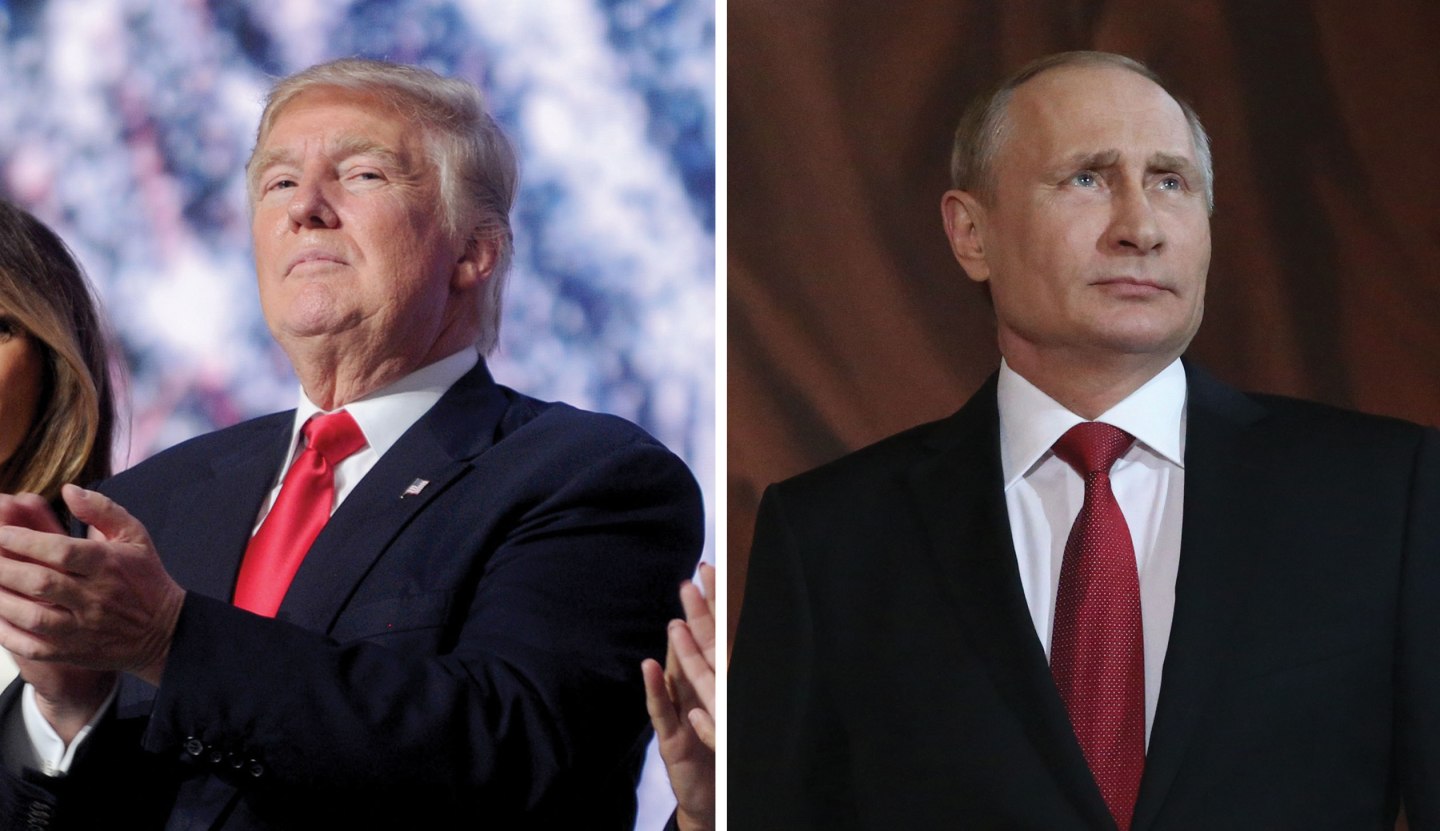While experts mull over how Donald Trump’s promises to strengthen ties with Russia will affect both countries, Trump’s election has already helped add tens of billions of dollars in value to the Eurasian country’s biggest stock market.
The dollar-denominated RTS Index, which tracks the 50 biggest Russian companies traded on the Moscow Exchange, gained over $28.9 billion in market cap between Trump’s election and Friday, Jan. 13, bumping the combined market cap of the exchange up to $174.9 billion.
This surge in the Russian equity markets comes as a result of higher oil prices, signs of a recovering Russian economy, and Trump’s promises to strengthen Russian relations, said Paul Gambles, the director of MBMG Investment Advisory.
Over the weekend, Trump said he would offer to end sanctions imposed on Russia for its annexation of Crimea in 2014, in return for a nuclear arms deal. On the campaign trail, Trump once suggested that the U.S. should recognize the annexation. Lifting those sanctions would require just an executive order from the Oval Office.
“The Ukraine conflicts in 2014 caused Russian assets to sell off from their already low valuations,” said James Syme, a senior fund manager at Jo Hambro Capital Management in London, in a phone interview. “So the prospects of a détente between the U.S. and Russia…helped boost the equity market.”
The RTS Index has risen 21.8% since Trump’s election, while another index tracking the Moscow Exchange, the ruble-denominated MICEX Index, has risen 12% in the same period.
While Trump’s election gave Russian equities a jolt, the stock market was already trending upward during 2016 thanks to expectations of a recovery in the Russian economy.
The pace of Russia’s GDP decline has slowed, while December inflation finally neared the Central Bank of Russia’s 4% target.
Russia, whose economy has been hurt in recent years due to the low price of oil, also got a boost from the Nov. 30 OPEC agreement to cut oil production.
“The Russian market is heavily dominated by energy stocks,” said Charles Movit, senior manager at IHS Markit Economics in a phone interview. “I would ascribe it more to the recent OPEC agreement than ascribing it to Mr. Trump.”
For example, the three biggest oil giants by revenue account for nearly a third of the Moscow Exchange’s total market cap.
In dollar terms, shares of Russia’s biggest oil company by revenue, Gazprom, have risen 20.2% since Trump’s election, Another oil giant, Lukoil, has risen 18.7%. Rosneft has risen 21.5%.
These rising stock prices could potentially help the Russian government raise even more revenue should it try to plug its budgetary gap by selling even more of its stakes in companies. The Russian government holds majority stakes in Gazprom and Rosneft—51.6% and 64.4% respectively, according to Bloomberg data. The government holds just a 0.28% stake in Lukoil.
But attempts to deal with Russia’s budget woes by privatizing the companies are likely to be met with objections from the Kremlin elite, according to Stratfor’s senior Eurasia analyst, Lauren Goodrich.
“Almost every member of the Kremlin elite would profit from the stock market’s rise,” Goodrich said in a phone interview, adding that most, if not all, Kremlin officials own stakes in Russian companies.
Igor Sechin, the CEO of Rosneft, is considered Russian President Vladimir Putin’s left-hand man. His stake in Rosneft has increased in value by about $16.5 million based on the RTS index and Rosneft’s website, to $88.9 million, since Nov. 8.
That said, it wasn’t just Russian companies and investors that got a leg up from the stock bump. According to the Moscow Exchange, 45% of equities trades in the first 11 months of 2016 were made by foreign investors—a figure that has held relatively steady over the past three years.













